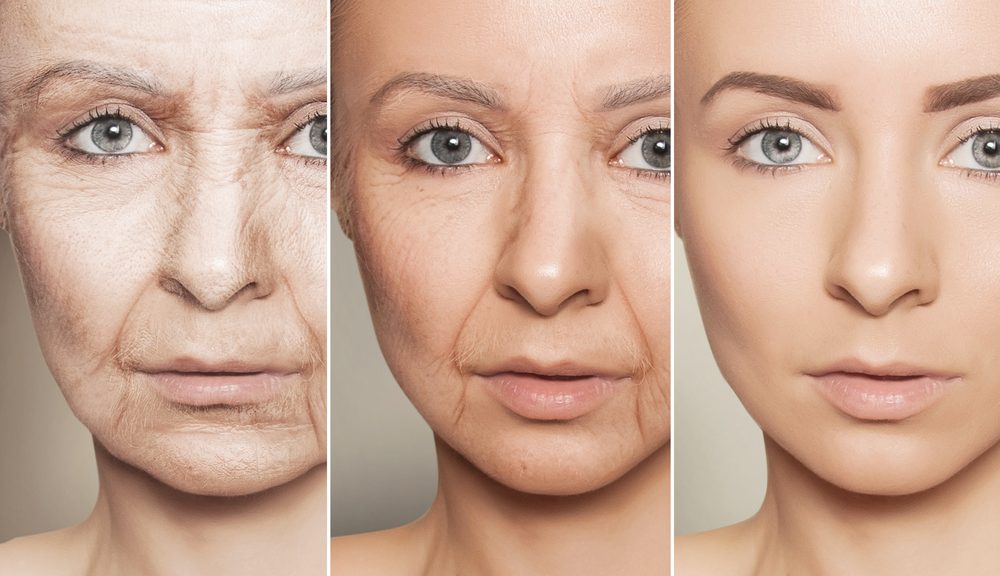Anti-ageing. It’s a wonderful phrase, isn’t it? It sounds mystical in a way; almost magical. Something that’s illogical and oh-so difficult to attain. But then, it depends on how you look at it. Because, of course, if you’re thinking of something along the lines of some sort of silver bullet that stops your body from ageing at all, then you really are in the realms of magic and fantasy.
Yet, in far more realistic terms, anti-ageing refers to the efforts that effective habits can contribute to you slowing the rate of ageing (or, to be bluntly precise, the rate of decline) of your body as you age. And that means adopting such habits as regular, decent physical exercise and a healthy diet based around natural, organic food.
Yes, to that end then, as you age you really are only as healthy as the food you eat. To wit, the following are all anti-ageing foods you should be looking to incorporate into your diet, at the very least.
Antioxidant foods
Owing mostly to a poor diet (as well as environmental factors), harmful entities known as toxins find their way into your body, producing micro-organisms called free radicals that are hazardously effective at damaging the body’s cells. The best way to counter their efforts, though, is to pack your diet with anti-ageing foods rich in antioxidants; molecules themselves, which neutralise free radicals. Indeed, a recent study suggests that consuming antioxidants helps people age slower, live longer and encounter fewer health issues1. The following are all great examples of antioxidant foods:
 Berries – thanks to the two kinds of antioxidants they contain (flavonoids and anthocyanins, the latter responsible for their bright and bold colours), blackberries, blueberries, goji berries, raspberries and strawberries are all capable of contributing to a soothing of inflammation and boosting immunity2
Berries – thanks to the two kinds of antioxidants they contain (flavonoids and anthocyanins, the latter responsible for their bright and bold colours), blackberries, blueberries, goji berries, raspberries and strawberries are all capable of contributing to a soothing of inflammation and boosting immunity2
 Cruciferous vegetables – these kinds of veggies (brassicas) are absolutely teeming with the likes of isothiocyanates and indole-3-carbinol (yes, both of them antioxidants); note that the US National Cancer Institute advises eating broccoli, Brussels sprouts, cabbage and/ or cauliflower on a daily basis3
Cruciferous vegetables – these kinds of veggies (brassicas) are absolutely teeming with the likes of isothiocyanates and indole-3-carbinol (yes, both of them antioxidants); note that the US National Cancer Institute advises eating broccoli, Brussels sprouts, cabbage and/ or cauliflower on a daily basis3
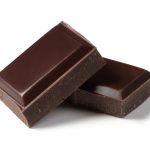 Dark chocolate – yes, chocolate is officially good for you, so long as it’s dark and contains at least 60% cocoa, ensuring it’s full of antioxidants called polyphenols
Dark chocolate – yes, chocolate is officially good for you, so long as it’s dark and contains at least 60% cocoa, ensuring it’s full of antioxidants called polyphenols
 Grapes – thanks to comprising the antioxidant resveratrol (which animal testing has proved is capable of extending lifespan4), red and purple grapes are highly healthy foods; resveratrol also occurs in organic, sugar-free grape juice
Grapes – thanks to comprising the antioxidant resveratrol (which animal testing has proved is capable of extending lifespan4), red and purple grapes are highly healthy foods; resveratrol also occurs in organic, sugar-free grape juice
 Green tea – the antioxidants in this beverage (the second most drunk on the planet… only after water itself) are so critical in the fight against ageing because they protect cells from oxidative stress (the oxidising of molecules that can so harm cells and their work throughout the body)5
Green tea – the antioxidants in this beverage (the second most drunk on the planet… only after water itself) are so critical in the fight against ageing because they protect cells from oxidative stress (the oxidising of molecules that can so harm cells and their work throughout the body)5
 Pomegranates – as with all the above, pomegranates owe their heath-giving effects to antioxidants (in this case polyphenols6).
Pomegranates – as with all the above, pomegranates owe their heath-giving effects to antioxidants (in this case polyphenols6).
Unsaturated fat foods
Generally, as far as the human body’s concerned, there are two kinds of fat – and one of them’s definitely not bad, but the other one definitely is. Saturated fat’s the bad one, as it raises cholesterol and puts a person at risk from potential heart disease and stroke; happily, though, unsaturated fat’s the good one, as it helps to promote healthy cholesterol levels.
One kind of unsaturated fat is polyunsaturated fat, which occurs naturally in Omega-3 fatty acids (of which you’ve no doubt heard; they’re fantastic for aiding heart health7). The following foods then are ideal sources of these specific fatty acids:
 Avocados – those in the know claim these fruits (the source for great guacamole, of course) not only support healthy cholesterol levels, but also contribute to good brain health, all of which may have a connection to their substantial Omega-3 content8, 9
Avocados – those in the know claim these fruits (the source for great guacamole, of course) not only support healthy cholesterol levels, but also contribute to good brain health, all of which may have a connection to their substantial Omega-3 content8, 9
- Flaxseeds – a terrific source for Omega-3 goodness (as well as dietary fibre and several other nutrients), flaxseeds are, of course, cultivated for their oil as well as used whole, cracked or ground up as additions to the likes of salads, smoothies and baked foods.
Vitamin and mineral foods
So much for how the clever-clever sounding antioxidants and Omega-3 fatty acids (and, thus, the foods they contain) combat the ageing process – but, don’t doubt it, you can rely on good old-fashioned vitamins and minerals as well to boost your body’s health in an effort to keep it as young and in as good working order as possible.
The trick here is to consume as part of your daily diet as much natural, unprocessed organic food as you can (and as little processed, saturate-fat- and additive-rich foods as you can). Indeed, these naturally-derived foods are all superb sources for vitamins and minerals:
- Beans – blessed with assorted nutrients (iron, magnesium, potassium and zinc), the essential-for-life amino acid lysine and the B-complex vitamin folate, without which all-important red blood cells couldn’t be created in the body, beans are incredibly healthy additions to anyone’s diet10
 Dark leafy greens – high in Vitamins A, C, E and K, all such vegetables also feature great levels of calcium, fibre, iron, magnesium and potassium, while the likes of spinach, bok choy, kale and mustard greens are great sources for B-complex vitamins; moreover, dark leafy greens also boast a low glycemic index (GI), meaning they won’t force your blood glucose/ insulin levels to rise, important should you have diabetic issues11
Dark leafy greens – high in Vitamins A, C, E and K, all such vegetables also feature great levels of calcium, fibre, iron, magnesium and potassium, while the likes of spinach, bok choy, kale and mustard greens are great sources for B-complex vitamins; moreover, dark leafy greens also boast a low glycemic index (GI), meaning they won’t force your blood glucose/ insulin levels to rise, important should you have diabetic issues11
 Whole grains – refined grains lack all of the goodness of the entire grain, by definition then, whole grains do the opposite, comprising as they do all the grains’ natural nutritional value; so, including B vitamins and Vitamin E, calcium, dietary fibre, iron, magnesium and potassium, whole grains like amaranth, buckwheat, kaniwa, millet and quinoa are the ones to go for12.
Whole grains – refined grains lack all of the goodness of the entire grain, by definition then, whole grains do the opposite, comprising as they do all the grains’ natural nutritional value; so, including B vitamins and Vitamin E, calcium, dietary fibre, iron, magnesium and potassium, whole grains like amaranth, buckwheat, kaniwa, millet and quinoa are the ones to go for12.
Anti-aging supplements
As noted, fundamentally basing your diet around foods like those above is the best way to pivot your diet in an anti-ageing direction; yet, should you find this difficult, you might try to introduce some of those foods into your daily eating habits and rely on one or two naturally-occurring, organic supplement products as well. The following are all available at The Finchley Clinic:
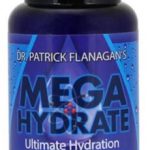 MegaHydrate – claimed by the company behind it to be one of the most powerful antioxidants on the market, MegaHydrate is 800% more effective than other known products or foods, so much so it’s sometimes referred to as the ‘anti-ageing pill’ (like MegaHydrate Powder – see below – it’s currently on special offer at The Finchley Clinic)
MegaHydrate – claimed by the company behind it to be one of the most powerful antioxidants on the market, MegaHydrate is 800% more effective than other known products or foods, so much so it’s sometimes referred to as the ‘anti-ageing pill’ (like MegaHydrate Powder – see below – it’s currently on special offer at The Finchley Clinic)
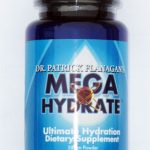 MegaHydrate Powder – obviously a powder form of MegaHydrate, you get more bang for your buck (so to speak) with this format of the antioxidant supplement, as each bottle contains 50g compared to the 18g per bottle the above version offers
MegaHydrate Powder – obviously a powder form of MegaHydrate, you get more bang for your buck (so to speak) with this format of the antioxidant supplement, as each bottle contains 50g compared to the 18g per bottle the above version offers
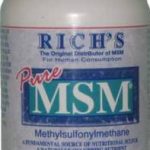 MSM Powder (2 lbs) – methylsulfonylmethane (MSM) is the body’s most prevalent (and so, definitely one of its most necessary) minerals; it’s key for effective skin, hair and nail growth, keeping connective tissues strong, ensuring good joint function, proper enzyme activity, hormone balance and effective immunity.
MSM Powder (2 lbs) – methylsulfonylmethane (MSM) is the body’s most prevalent (and so, definitely one of its most necessary) minerals; it’s key for effective skin, hair and nail growth, keeping connective tissues strong, ensuring good joint function, proper enzyme activity, hormone balance and effective immunity.
References
- Assmann K. E., Andreeva V. A., Jeandel C., Hercberg S., Galan P. and Kesse-Guyot E. ‘Healthy Aging 5 Years After a Period of Daily Supplementation With Antioxidant Nutrients: A Post Hoc Analysis of the French Randomized Trial SU.VI.MAX’. American Journal of Epidemiology; 182. 8 (2015): 694-704.
- ‘Berry Beneficial: Reduce Inflammation with Fruit’. Penn State Extension: Nutrition, Diet, and Health. Penn State College of Agricultural Sciences; 2014 27 Oct.
- Higdon J. ‘Cruciferous Vegetables’. Linus Pauling Institute. Oregon State University; 2017 3 Jan.
- Wein H. ‘How Resveratrol May Fight Aging’. National Institutes of Health. U.S. Department of Health and Human Services; 2013 25 Mar.
- Forester S. C. and Lambert J. D. ‘Antioxidant Effects of Green Tea’. Molecular nutrition & food research; 55. 6 (2011): 844–854. PMC.
- Ehrlich S. D. ‘Pomegranate’. University of Maryland Medical Center. University of Maryland Medical Center; 2016 2 Feb.
- ‘Omega-3 Fatty Acids: An Essential Contribution’. Harvard: T.H. Chan School of Public Health. The President and Fellows of Harvard College.
- Indivero V. M. ‘An Avocado a Day Keeps the Cardiologist Away’. Penn State University. Pennsylvania State University; 2015 7 Jan.
- DeMello H. ‘Boost Your Brain Health’. Healthy UNH. University of New Hampshire; 2014 30 June.
- Messina V. ‘Nutritional and Health Benefits of Dried Beans’. The American Journal of Clinical Nutrition. U.S. National Library of Medicine; 2014 July.
- Yan L. ‘Dark Green Leafy Vegetables’. usda.gov. United States Department of Agriculture; 2016 13 Aug.
- ‘Health Benefits of Whole Grains’. Tufts University Health & Nutrition Lette. Tufts University; 2016 Nov.


